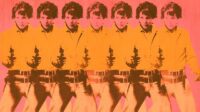When you think of Blake Edwards, you probably think Victor/Victoria. Breakfast at Tiffany’s. Pink Panther. You probably don’t think of 1965’s The Great Race.
The Great Race was Edwards’ first big critical and commercial flop, which will never fail to astound me to this day. It’s a fast-paced period slapstick comedy starring Tony Curtis and Jack Lemmon as dueling good-guy/bad-guy daredevils, Natalie Wood as an intrepid reporter, and Peter Falk as Lemmon’s useless evil henchman. It’s utterly delightful, and while it would be a stretch to say there’s any seriousness to be found along the lines of Edwards’ usual social commentary comedy style, there’s a real sense of charm and enjoyment shared in the acting, technical aspects of the film, and sheer indulgent stupidity of plot that makes The Great Race one of my favorite films of all time.
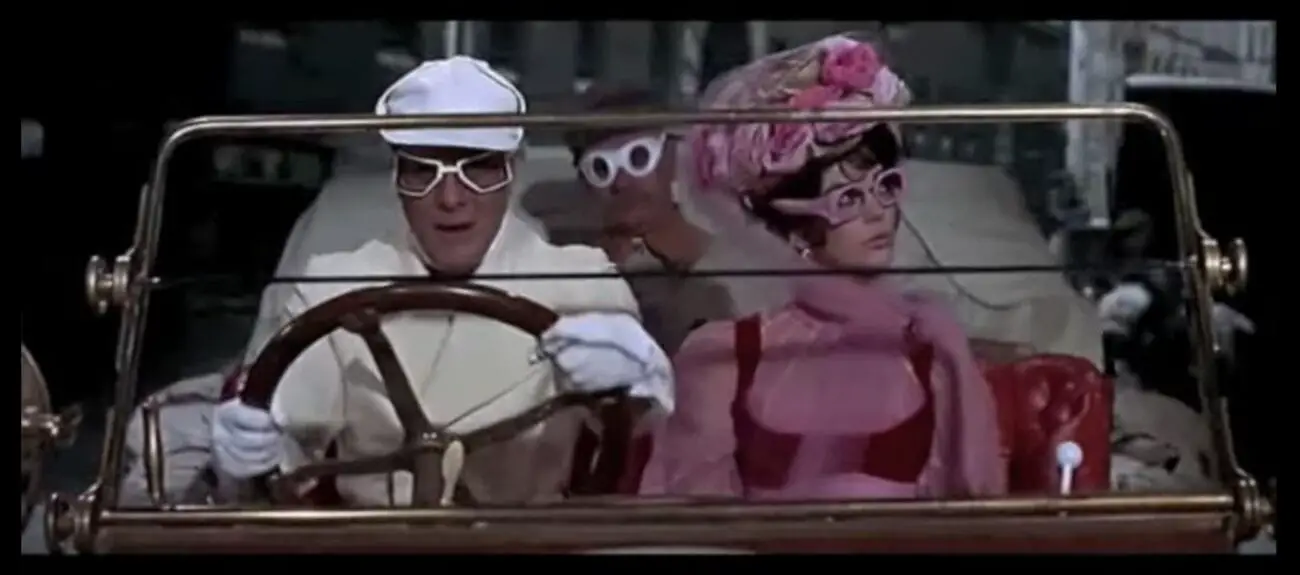
Set at the turn of the 20th century, the film begins with an (admittedly) long sequence to set up the rivalry between The Great Leslie (Curtis), an all-white-wearing, muscle-bound womanizer with a literally sparkling smile, and Professor Fate (Lemmon), a mustache-twirling, melodramatic, maniacally laughing, top-hat-clad villain, who, with the help of his henchman Max (Falk), attempts to foil, and on many occasions, kill The Great Leslie. Leslie’s feats of strength and luck are overwhelmingly successful as Fate’s plans inevitably backfire and result in a goofy “ta-da” musical motif as he gets blown up/lands in a barn/gets a tree dropped on him, etc. Classic.
Leslie decides simple daredevil acts have become too boring, and pitches the titular “Great Race” to an automobile company—a race that will take contestants all the way around the world, by land, from New York to Paris. Fate infiltrates the meeting, and vows to defeat Leslie once and for all.
The last puzzle piece revolves around Maggie DuBois (Wood), a journalist and impeccably dressed suffragette who convinces a prominent New York newspaper to allow her to cover the race from the inside as their first woman reporter. After failing to get Leslie, Fate, or presumably any other entry to take her with them, she buys her own car to represent the paper.
The race begins; Max hijacks all the other contestants to leave just Leslie and his partner Hezekiah (Keenan Wynn), Fate and Max, and Maggie as the only three entries. International hijinks ensue.
First, the performances. Tony Curtis plays The Great Leslie with this dry, utterly relaxed charm that works delightfully as the straight man to Lemmon’s frenetic Fate and Wood’s hyper-competent DuBois. You never have any doubt that Leslie will succeed, even if his good heart and exaggerated hero-like tendencies wind up getting in his own way on several occasions. Fate plays so dirty and fails upwards consistently enough that you’re genuinely not sure who’s going to win, all the way through the very end.
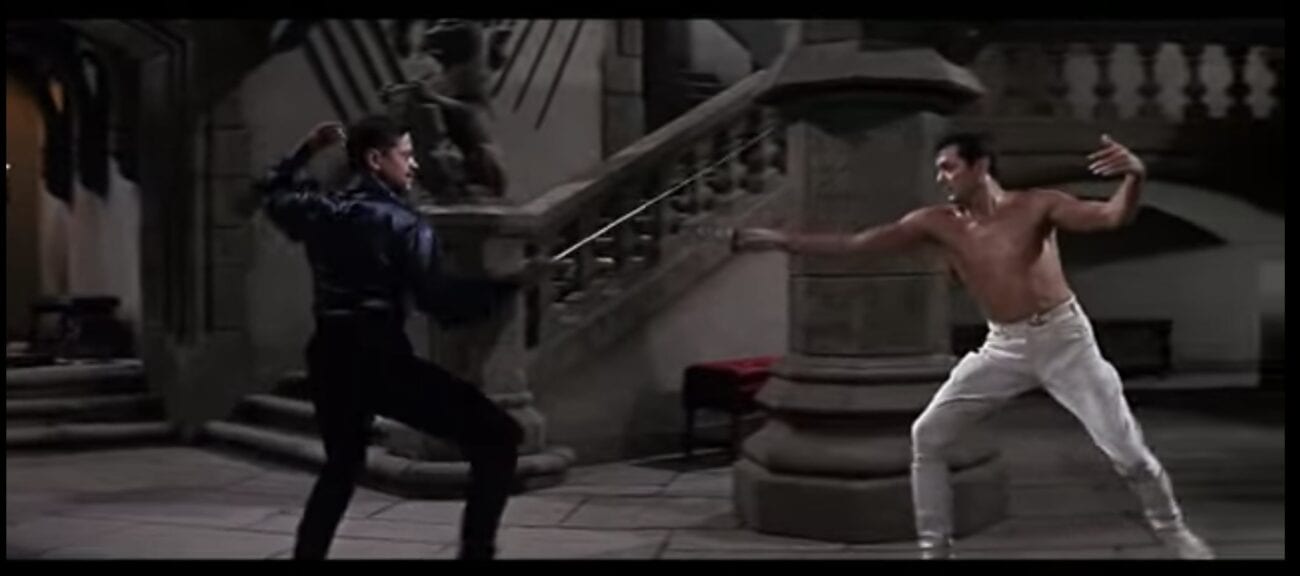
Both Curtis’ comic stylings and natural protagonistic sincerity are well-utilized throughout the film. Leslie is such the American superhero that he himself falls for the act a couple of times; even when he succeeds in besting a European Baron in a spectacularly showy, sweaty, excessively masculine sword fight at the crux of the film, he is bested by Maggie only minutes later in a botched romantic move that earns him a swipe across the face.
I remember being ten years old and watching this movie for the first time and being simply bowled over by Natalie Wood’s performance. Maybe it was the fact that she, too, was named Natalie, but her boundless joy and brilliant comic timing became aspirational. Suddenly she put other Natalies into a context for me. I could be funny and charming and graceful and exhaustingly expressive like that some day if I wanted. She wears clothes like nobody’s business and knows how to move her tiny 5’ frame with such specification that the twist of a shoulder, an ankle, or an eyebrow can tell you as much as her line readings do.
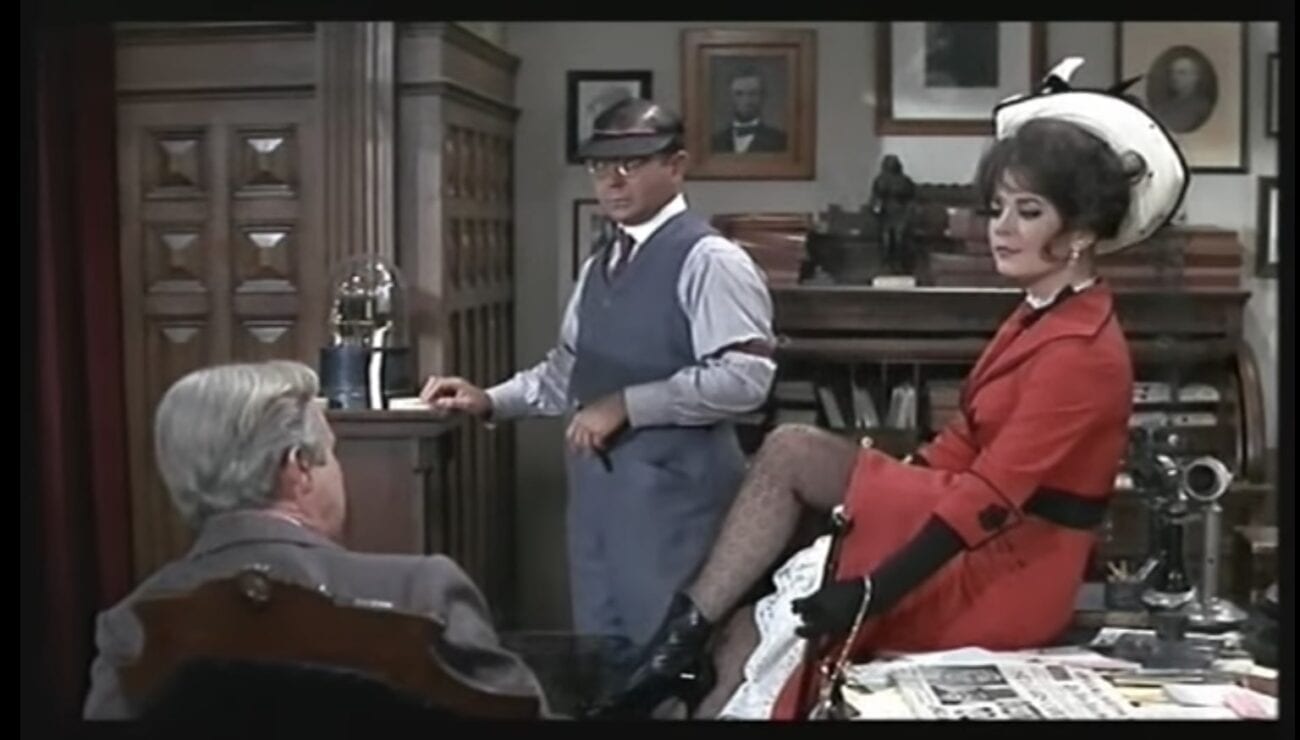
This ideological, lovingly satirical, angry, devil-may-care, sexy, unabashedly nuts 1900s suffragette taught me quite a bit about the performance of femininity that I wanted to understand. Many an action movie nowadays will laud itself for having “strong female characters” defined by their lack of emotion, proximity to masculinity, or conversely, weaponized sexuality. There’s very little in-between and few films concern themselves with just writing… interesting women.
Edwards has always been above that, to me, and Maggie DuBois is no exception. She’s sexy, and charming, and sure, shows off her leg in a silk stocking to get her job (really just because she knows it’ll make the Editor-in-Chief uncomfortable); she also handcuffs herself to the men’s bathroom in the name of women’s rights, fences Tony Curtis as a means of flirting, and throughout this nutjob film is dedicated to her job as a reporter (and turns out to be one of the only actually competent people in the face of danger). She’s crazy. You love her for it.
Curtis and Wood have remarkable chemistry. Wood’s Maggie DuBois is brave, curious, and undefeatable. She commands the attention of the (usually fairly stupid) men around her and is thus one of the only people in the film who actually seems to know what the hell is going on at any given moment. In the face of Curtis’s Leslie, who is cool, unbreakably confident, casually misogynistic and pristine, she has met her match.
The supporting cast makes a meal out of this film as well. Keenan Wynn as Hezekiah makes an excellent foil to Curtis; perhaps smart on paper, but balder than his friend and much more easily duped by Maggie than Leslie is, which never fails to be entertaining. Vivian Vance makes a marvelous cameo as the wife of Maggie’s Editor-in-Chief. She’s a fellow domineering, no-bullshit suffragette with some of the best one-liners in the film. Larry Storch pops in as the western homage to start a bar fight as a cartoonishly evil, handlebar-mustached, and absolutely tiny cowboy named “Texas Jack.”
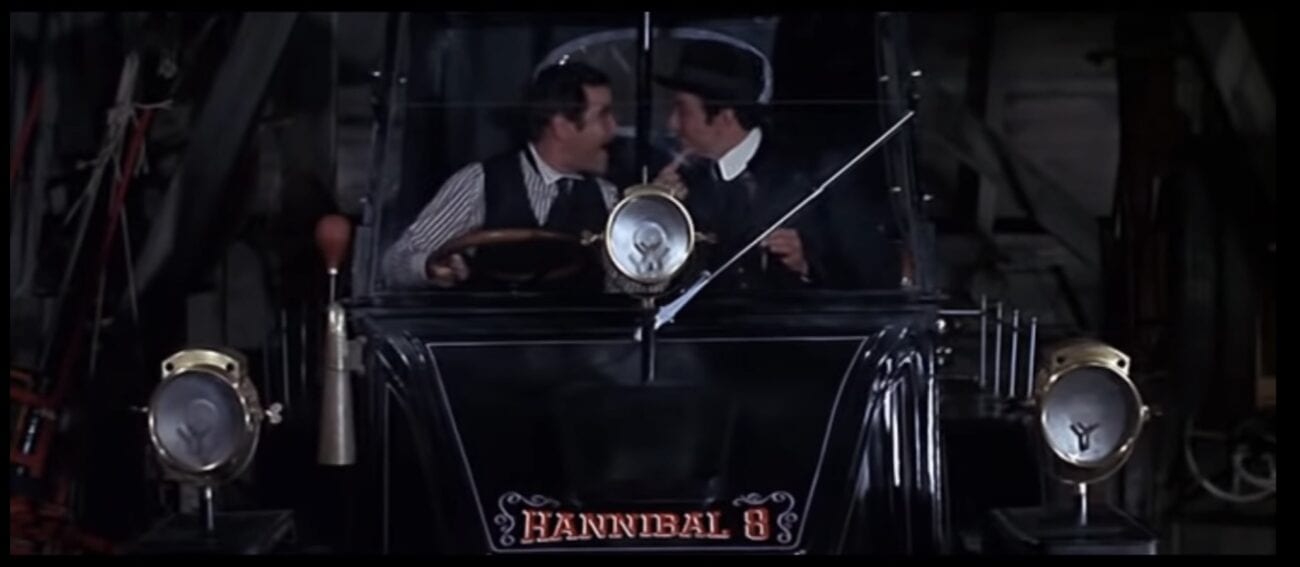
And finally, Jack Lemmon and Peter Falk make an utterly delightful duo throughout the film. It’s difficult to pit two idiot characters in with each other but you find yourself rooting for them nonetheless. Lemmon’s Professor Fate is the perfect comic villain. He has an unshakeable confidence in the face of his many, many failures that makes him almost cartoon-like. Max, his henchman, is hopelessly devoted to Fate in the face of much verbal (and occasionally physical—this is slapstick, you know) abuse, but you get the impression in some moments that he is surprisingly clairvoyant.
There isn’t much to say here except, bizarre as it may be, it just works, and you’ve just gotta watch it. These two comic veterans give a masterclass in slapstick, commitment, God—facial expressions, even. It’s a gold mine of comedy. You’ll find yourself coming out of your viewing wanting to punctuate every action with an enthusiastic “PUSH THE BUTTON, MAX!”, and will no doubt be disappointed when your microwave doesn’t explode in your face or punctuate your burrito warming with an orchestral sting.
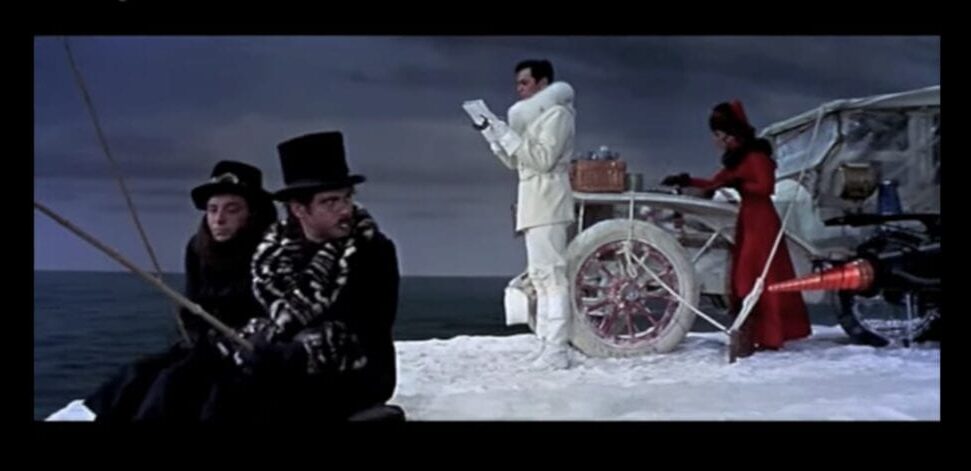
The film’s score also happens to be one of my favorites of all time. It’s masterfully hammy, with Leslie’s successes dominated by an energetic big-band-inspired theme, and the melodramatic moments, like a genuinely tense sword fight at the end of the second act, are satisfyingly tense and subtle. There are a few original songs, as well. A burlesque number that takes place in the wild-west-inspired portion of the movie titled “He Shouldn’t-A, Hadn’t-A, Oughtn’A Swang on Me” enjoys a campy, flirty femme fatale performance that ends in a massive bar fight. (You’ll also have it stuck in your head for a week.) It’s a perfect lampooning of the genre that still feels genuine and engaging.
Perhaps what makes The Great Race’s satire so appealing is that it’s rooted in love. Every aesthetic, every subgenre they poke fun at is being enjoyed so thoroughly by everyone on screen that you can’t help but get pulled along. The aforementioned western sequence really does feel like a spaghetti western, with just enough side-eyes and winks from the writing to get an extra couple laughs out of you along the way.
It’s got plenty of Edwards’ recognizable brand of almost absurdist humor, as well. One of my favorite gags is in Maggie’s introduction scene: as she explains to the newspaper’s Editor-in-Chief her plan for women’s liberation, she leans out the window to yell “Out of the laundry rooms, and off the pedestals!” and gets honked at by a passing car. Another that’s easy to miss is a moment later in the film where Fate screams “GET OFF OF THE BED” to four or five pug dogs. The opening credits, designed as though being played on an early film real to fit the period of the film (which you’ll notice dedicates itself to Laurel and Hardy on the second slide), contain some great visual and aural bits in the first three minutes of the movie.
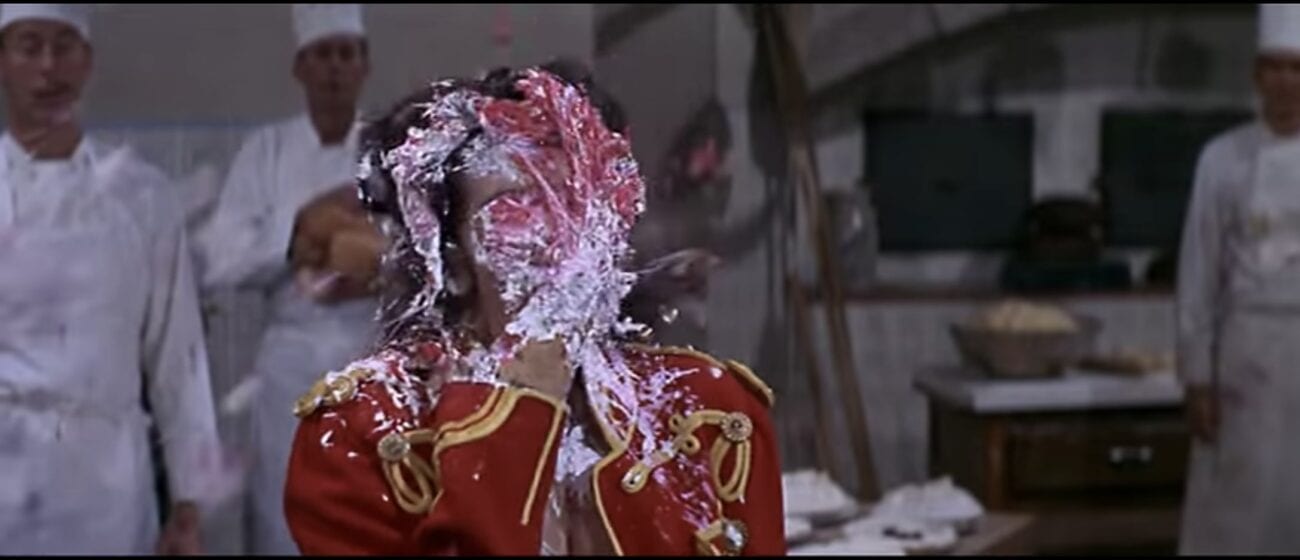
Arguably the most memorable moment in the film is “the greatest pie fight ever,” which truly does live up to the title. It’s a moment that ties together everything that makes The Great Race so, well, great. It takes place at the end of the second act, when Leslie, Fate, DuBois and Max are about to escape a castle in Eastern Europe where they had been held and kidnapped (oh yeah. Pure camp). Our ragtag group of protagonists winds up in the castle’s kitchen, as the chef is preparing a cake for the coronation of a local Prince (who happens to look exactly like Professor Fate. Like I said. Camp.) What ensues is a perfect confection of high-energy slapstick and charming character humor.
Leslie, the only member of the gang still fully dressed, floats through the kitchen effortlessly avoiding flying pies from all sides, as the rest of the cast devolves into cream-covered madness. By the end of the scene, in Edwards’ own words, you’re “yearning for him to get it.” And get it, he does. The sequence is four minutes long, and according to the Warner Film Archive, took five days and 4,000 pies to shoot. It’s truly magnificent.
The Great Race is a whirlwind, eclectic ride. It’s funny, it’s charming, it’s got excellent costume design and an energetic, enticing score. It’s lush and colorful and you’ll feel like you’re in wonderland just looking at it. It coaxes unique, specific, marvelous performances from all of its actors. It’s a love letter to farce, to Laurel and Hardy. It’ll make you laugh and at times it will make you tense. The stakes are only as high as you let them, but that doesn’t stop it from demanding your attention. It is a car crash at high speed into the Eiffel Tower. You won’t want to look away for a moment.



